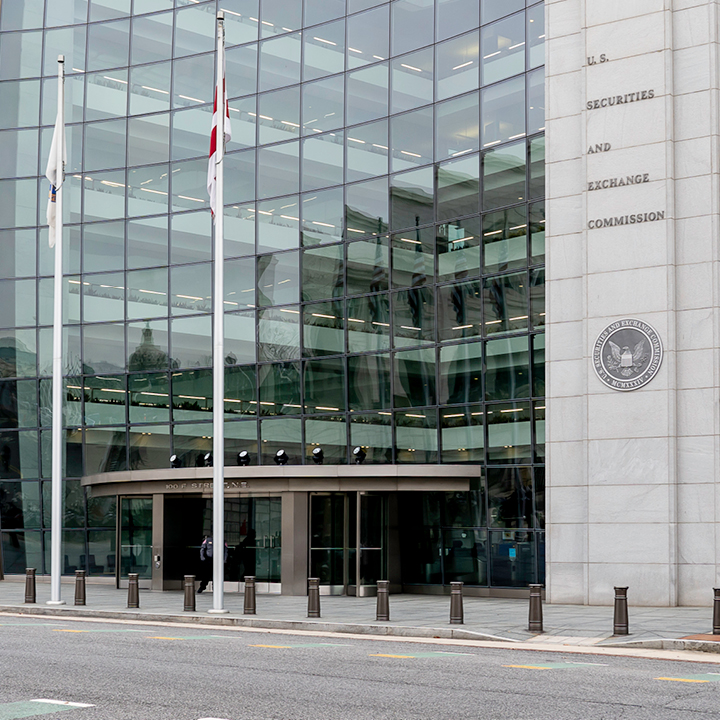With complex and uncertain rulemaking, geopolitical polarization, and an ongoing debate around whether real world impacts are being felt, the ESG landscape is due some good news. That may have come with the U.K. Financial Conduct Authority’s (FCA) final Sustainability Disclosure Requirements.
Running counter to recent regulatory history, the industry’s reaction to the final U.K. rules has generally been positive and hopefully represents a step towards a more flexible and pragmatic future for ESG rulemaking.
Let’s look at the standout areas of focus:
Flexible and pragmatic approach
In several instances, the FCA made the rules less rigid and framed them more in line with the practicalities of how current market processes operate.
Our take: It’s clear the regulator has listened to industry feedback on framing the final rules.
Subtle but important name change
Industry considered the word “sustainable” implied a fund had already met its goals. It felt “sustainability” is a better reflection of the various strategies and the fact that many investable companies are on a journey to improving their sustainability.
Our take: It’s a subtle but very important distinction to improve the labeling regime.
Four distinct product labels
The FCA has added an additional fourth product label to reflect funds which might use a mixture of distinct sustainability strategies and approaches:
- Sustainability Focus. Funds that invest 70% of assets that are sustainable for people and/or the planet
- Sustainability Improvers. Funds that invest 70% of assets that have the potential to improve environmental and/or social sustainability over time
- Sustainability Impact. Funds that invest 70% of assets with an aim to achieve a pre-defined positive measurable impact in relation to environmental and/or social sustainability
- Sustainability Mixed Goals (NEW). Funds that invest 70% of assets in a combination of the sustainability objectives for the other labels. Firms must identify (and disclose) the proportion of assets invested in accordance with any combination of the other labels.
All assets held under the rules should meet a robust evidence-based standard of environmental and/or social sustainability.
Our take: With recent uncertainty around ESG rulemaking, the FCA is making an effort to increase clarity around product labeling.
Unlabeled products
These are in essence the 5th label – since any funds that do not have a sustainability label still have to produce the same type of disclosures as those with labels, as well as explain to investors why they do not have a label. Any fund without a label is explicitly prevented from using the terms ‘sustainable,’ ‘sustainability,’ or ‘impact’ in their funds, website, or investor communications.
Our take: You are either in or out when it comes to U.K. sustainability it seems.
Quantitative assessments
All labeled funds must have at least 70% of portfolio assets aligned with the funds’ sustainability objective. The rules allow certain accommodations made for “ramp up” phase and other investments for risk management and liquidity purposes.
Our take: The final rules have thankfully dropped the previously suggested “unexpected assets” disclosure, and a requirement to explicitly describe the causation and effect of corporate stewardship activities.
Offshore funds
The regulator has stopped short of addressing the thorniest issue of the rules, namely how SDR will apply to overseas funds sold in the U.K. The FCA has conducted a mapping exercise of their labels to E.U. SFDR, which is interesting as SFDR is currently under consultation and the FCA suggest the two rulesets are “compatible.” Within the mapping exercise the FCA suggest that SFDR Article 8 funds might need to “level up” to qualify for any of the SDR labels.
Our take: Industry will strongly advocate for convergence between the two rulesets. In many ways the final shape of SFDR 2.0 dictates what the U.K. Offshore regime looks like for offshore funds. If the two diverge that will be a sub-optimal position for both the U.K. and E.U.
Divestment is not the only way
Unlike the E.U. SFDR, U.K. SDR shows a pragmatic acceptance that investing in polluting clients, rather than shunning them, is acceptable if the approach is clearly outlined. The “theory of change” should also be obvious and benchmarked against an independently assessed standard such as GHG protocols or the E.U. Taxonomy, for example.
Our take: Whether it’s climate, diversity, or supply chains, many asset managers feel their only lever to force systemic change is to stay invested and try to influence companies to make the world better.
In conclusion: A lot done, more to do
While the rules are comprehensive and welcomed overall, there are still some major elements that remain unfinished. The overarching greenwashing rule is under consultation, and the Offshore Funds Regime’s interaction with the SFDR revisions will be crucial for both the U.K. and E.U. fund markets. With a formal regime now in place, the FCA can truly enter a period of inspection and possibly enforcement action against greenwashing.
These final rules are just another step on the ESG policy journey, and we will continue to revisit many of these issues again as we enter 2024 and beyond.
Brown Brothers Harriman & Co. (“BBH”) may be used to reference the company as a whole and/or its various subsidiaries generally. This material and any products or services may be issued or provided in multiple jurisdictions by duly authorized and regulated subsidiaries. This material is for general information and reference purposes only and does not constitute legal, tax or investment advice and is not intended as an offer to sell, or a solicitation to buy securities, services or investment products. Any reference to tax matters is not intended to be used, and may not be used, for purposes of avoiding penalties under the U.S. Internal Revenue Code, or other applicable tax regimes, or for promotion, marketing or recommendation to third parties. All information has been obtained from sources believed to be reliable, but accuracy is not guaranteed, and reliance should not be placed on the information presented. This material may not be reproduced, copied or transmitted, or any of the content disclosed to third parties, without the permission of BBH. Pursuant to information regarding the provision of applicable services or products by BBH, please note the following: Brown Brothers Harriman Fund Administration Services (Ireland) Limited and Brown Brothers Harriman Trustee Services (Ireland) Limited are regulated by the Central Bank of Ireland, Brown Brothers Harriman Investor Services Limited is authorised and regulated by the Financial Conduct Authority, Brown Brothers Harriman (Luxembourg) S.C.A is regulated by the Commission de Surveillance du Secteur Financier. All trademarks and service marks included are the property of BBH or their respective owners. © Brown Brothers Harriman & Co. 2023. All rights reserved. IS-09525-2023-12-12


